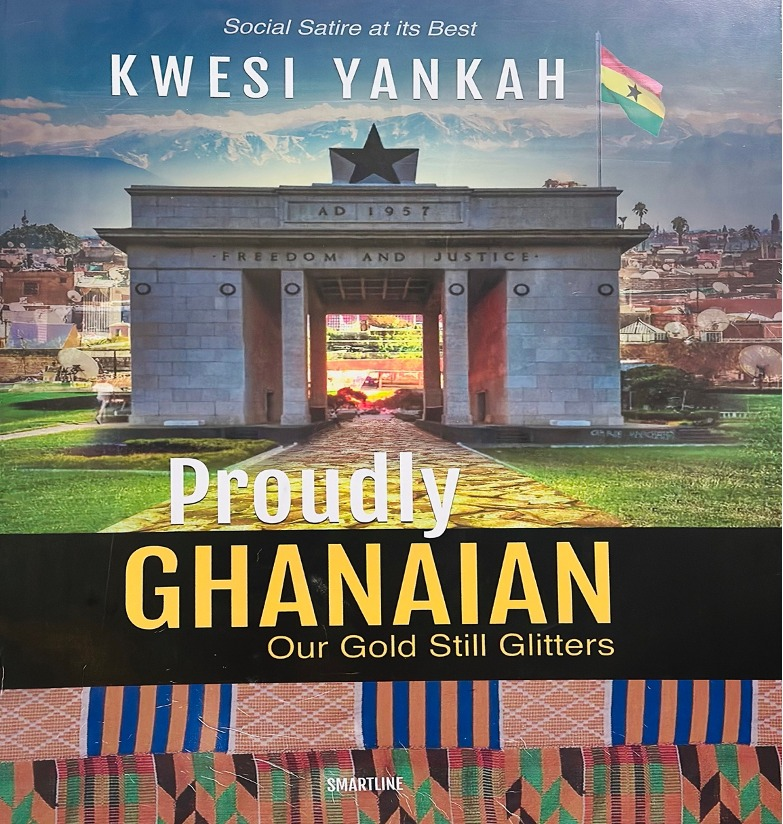Kwesi Yankah: The day my mother sent me – Nsemkeka
On the occasion of Mother’s Day, I present the following excerpt from my book: ‘Proudly Ghanaian.’ Mothers, you are truly special.
Among us boys, the way to avoid being sent on errands was to feign sickness early in the morning, or come home late from school, by which time God, by sheer Mercy, would have commanded all errands to cease, thus granting amnesty to all his juvenile tricksters. But times were coming home late brought untold misery unto God’s children.
The latecomer attempting to avoid the drudgery of pounding fufu could not outwit his mother. Her answer was to leave for the innocent latecomer a lumpy couple of half-pounded cassava and half-pounded plantain: twin balls of enigma that could neither be instantly consumed nor easily pounded. Thus, as God’s child sat behind the mortar struggling to pound the lumpy paste with one hand and turn it with the other, he would be literally enacting the experience of being a mother and a housewife.
Yet the eye of childhood remained puzzled by the speed with which food appeared and disappeared at mealtime. Mother would dash to the market and conjure up something. So strange how the little knot at the corner of Mother’s cloth could transform her empty headpan into a bountiful harvest each day. By the way, that little knot at the corner of Mother’s cloth, where did she get it? Who gave it to her? What would happen if the knot disappeared? I later learned the knot was Mother’s Bank of Ghana— hard-earned cash securely tied to free her hand. That was years ago. Come 1986, another Mother appeared in my life whose errands I could not escape.
When the going gets tough, the tough gets going, they say, and that is why, as a young lecturer in 1986, I devised a scheme to cut down marketing costs. I decided to allow the woman to send me to the market. I would go to the market, haggle, buy, and see things for myself. That way I could verify her weekly claims that the money didn’t last again…it’s getting worse and worse… last week was even better… let’s try Salaga Market… they say Malata is better… Oh, we should have remained with Madina.
I slipped my legs into my long shorts (nika boka), and charlie wote, then grabbed the nearest shirt and headed towards Madina market, the nearest to my abode. In my breast pocket was a sheet of paper – a list of items I had been sent to buy. It was something like a secondary school prospectus. I tossed and turned in my head the series of unwritten instructions I had been given.
“The tomatoes, don’t buy the very soft… the pekyee type. Avoid the crowded path where the villagers arrive with their produce… things there are expensive… go to the market proper. To the right of the main entrance, there is a 15-year old girl. She smiles a lot. Her tomatoes are fresh.”
“As for yam, avoid the women whose produce overlooks the car park… go a little deeper… near the corn mills. The okro, can you notice fresh okro when you see one? Don’t buy the wilted type. Let them snap off the tail and check the slimy terminal. Everybody knows good cassava. Avoid cut pieces, or those with parts peeled off… I know you like your fufu several times a week… those with parts peeled off don’t last.
And don’t forget the palm oil… did you take the bottle? Not the ordinary palm oil, and not dzomi. Between the two, there is a compromise grade; go to the dark lady behind the snail girls. She was kind to me the other day. As for the fish, use your discretion, but don’t forget to add a few Keta school boys…” etc., etc.
Just before leaving, I decided that good looks in a woman’s market wouldn’t hurt. I quickly grabbed a comb and a hand mirror and put my ruffled hair in order. I dabbed a thin film of powder on my cheeks, then stole a little of her perfume. I made sure the nika boka I wore had firm and long pockets – no room for pick-pockets. I counted the cash over and over again. They were in tens and twenties and that shows how delicate my budget was.
I took along her big bag. In it was an empty plastic bottle for palm oil. Then also were two smaller plastic bags for tomatoes, corn, eggs and fish. These, I was told, needed separate packaging or else there might be casualties. Cassava, for instance, could intimidate the tomatoes with its sheer might; plantains could accidentally behead the fish; and okro could innocently sink beneath the corn grains and suffocate or suffer premature death.
Thus, dreading a possible charge of vegetable abuse, I took all safety precautions as I headed prayerfully towards Madina market.
(An Excerpt from my recently launched book: ‘Proudly Ghanaian’). You can contact the writer via email at kyankah@ashesi.edu.gh

